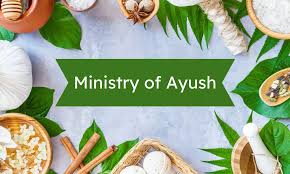
Nationwide Survey Reveals High Awareness and Usage of Ayush Across India
The National Sample Survey Office (NSSO) has conducted the first exclusive all-India survey on Ayush, covering the period from July 2022 to June 2023. The survey, part of the 79th round of the National Sample Survey (NSS), gathered comprehensive data from 1,81,298 households across the Indian Union, excluding some remote villages in the Andaman & Nicobar Islands.
The survey revealed that approximately 95% of rural and 96% of urban respondents are aware of Ayush. This high level of awareness spans across various demographics, indicating widespread recognition of traditional healthcare systems. At least one member in about 85% of rural and 86% of urban households is familiar with medicinal plants, home remedies, local health traditions, or folk medicine.
Over the past year, around 46% of rural and 53% of urban individuals have used Ayush for preventing or treating ailments. Ayurveda emerged as the most commonly used system in both rural and urban settings, reflecting its dominant role in traditional healthcare practices. The survey also highlighted that Ayush is predominantly utilized for rejuvenation and preventive measures, underscoring its importance in holistic health management.
The survey aimed to collect detailed information on the awareness of traditional healthcare systems (Ayush), the usage of Ayush for prevention or treatment of ailments, and awareness of home remedies, medicinal plants, and local health traditions. Additionally, data on household expenditure for treatments using Ayush systems were gathered. The results are available on the Ministry’s website ([www.mospi.gov.in](http://www.mospi.gov.in)).
A stratified multi-stage sampling design was employed, with villages and urban frame survey (UFS) blocks serving as the first stage units. Simple Random Sampling Without Replacement (SRSWOR) was used for selecting the FSUs and households.
Awareness of Ayush was defined as a member aged 15 years or more having taken Ayush treatment, heard about any Ayush system, or being aware of medicinal plants, home remedies, or traditional practices. Use of Ayush refers to the adoption of Ayurveda, Yoga, Unani, Siddha, Sowa-Rigpa, or Homeopathy for treatment or prevention of diseases on a medical practitioner’s advice or through self-medication.
High levels of awareness were recorded, with 95% of rural and 96% of urban males and females aged 15 and above aware of Ayush. About 79% of rural and 80% of urban households have at least one member aware of medicinal plants and home medicines, while 24% are aware of folk medicine or local health traditions.
The use of Ayush systems for prevention or treatment of ailments was higher in urban areas (53%) compared to rural areas (46%) over the past year. Ayurveda was the preferred system in both regions. Ayush was mainly used for rejuvenation and preventive purposes, followed by therapeutic treatments.
The survey also provided estimates of average expenditure incurred per person for Ayush treatments over the past year. This data is crucial for understanding the economic impact and accessibility of traditional healthcare systems.
The comprehensive survey by NSSO highlights the significant role of Ayush in India’s healthcare landscape, reflecting its widespread acceptance and utilization for both preventive and therapeutic purposes. The findings underscore the need for continued support and integration of traditional healthcare systems in the broader health policy framework.